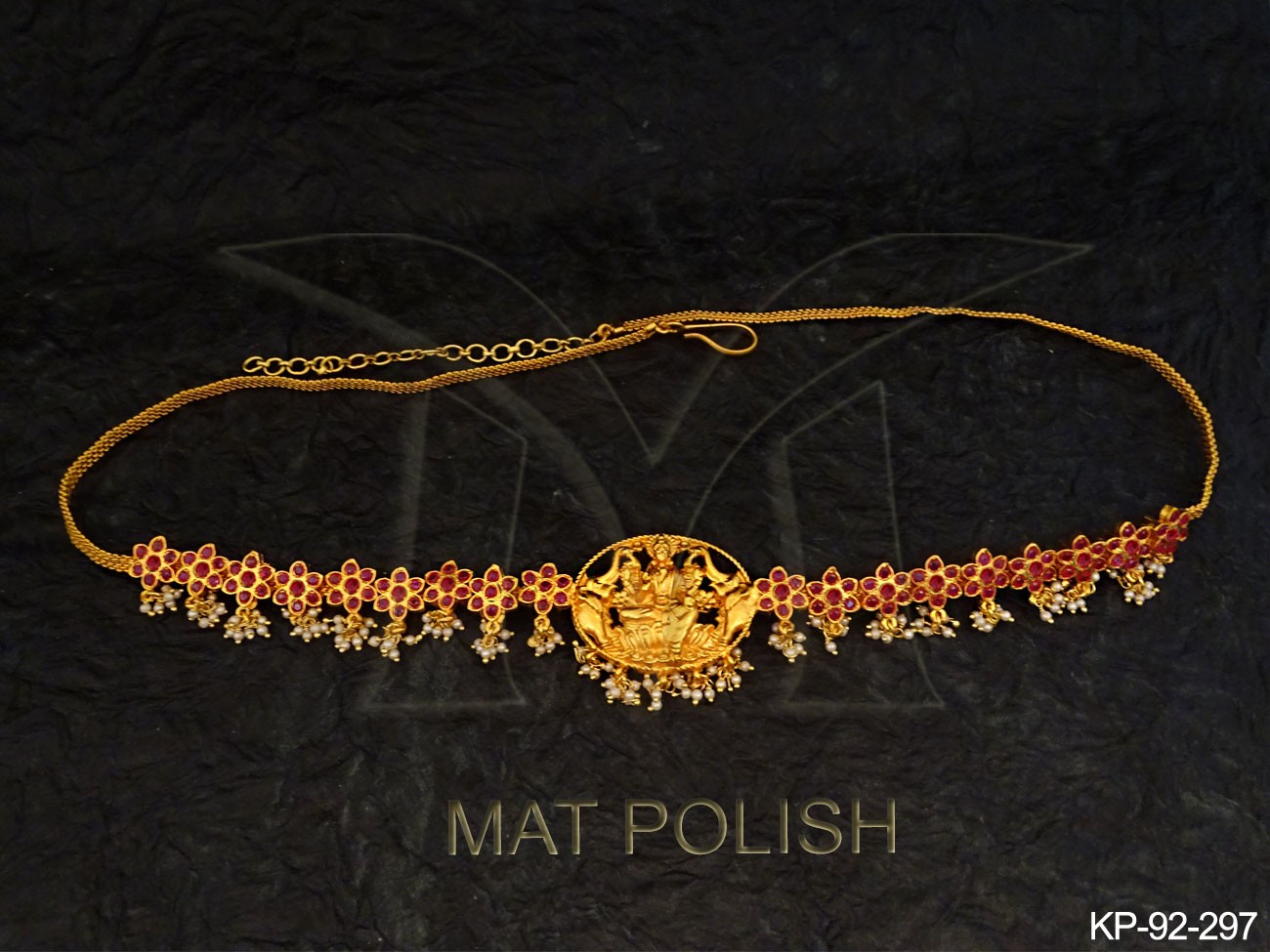South Indian Kamarpatta
India has a glorious history which affects each and every aspect of Indian lifestyle. Temple Jewellery has always remained an integral part of the Indian lifestyle. The diverse history of India has great influence on the jewellery styles as well. Temple Indian Jewellery history goes back to almost 5000 years. Ever since pre-historic times India people had a penchant for adorning themselves with Jewellery especially women. Gold, silver, stones, gems, etc. are the defining aspects of Temple Indian Jewellery.
Temple Indian Jewellery industry is much varied in styles and designs in accordance to the different regions. Temple Indian Jewellery has the unique design to the state and are not found anywhere else in the world. For example the delicate filigree work in silver which is unique to Odisha and Andhra Pradesh; Rajasthan is popular for Meenakari (jewellery enameling work). In south, the temple town of Nagercoil is famous for temple jewellery; Temple jewellery is famous in Delhi. Temple Indian Jewellery Industry has a variety of ornaments in different styles and designs for every part of the body. Gold Jewellery In ancient times, people used to adorn themselves with variety of necklaces, rings, anklets made of crude stones and other metals. As time has gone people learnt the art of polishing metals like gold and silver and learnt to extract semi-precious stones and gems from the mines. Even during ruling empires the rich kings wore jewellery that made them look like Gods. Every big and small piece of adornment was made of gold and precious stones like rings, earrings, Indian Jewellery, chains, crowns, anklets, etc. For past many years India has been ruled by different empires. All these empires have left an incredible mark on the jewellery styles. The Mughals had their own distinctive style of using precious stones and intricate carvings, the Rajputs had their enameled jewellery and so on.

